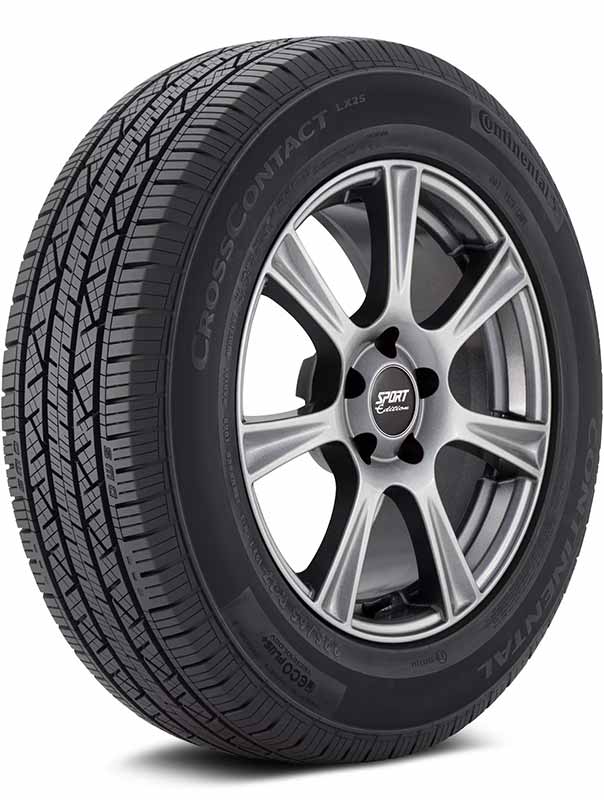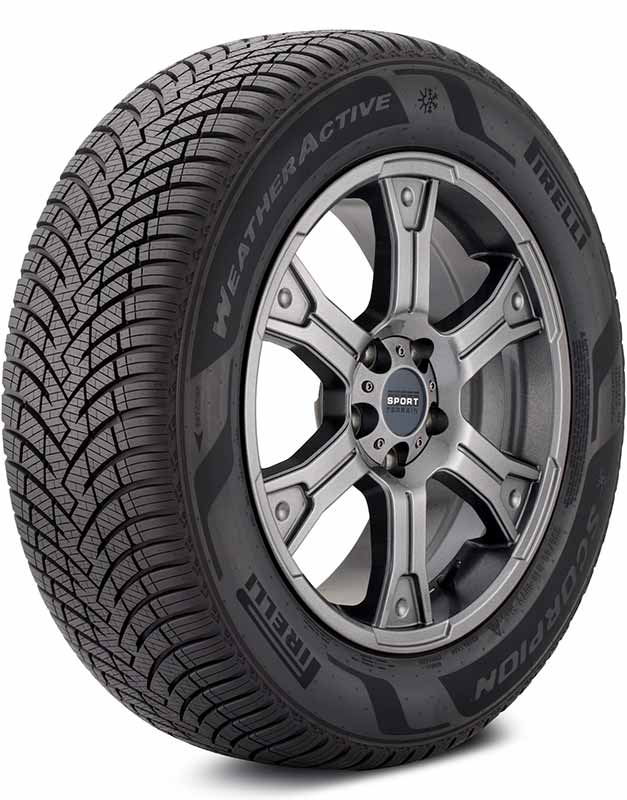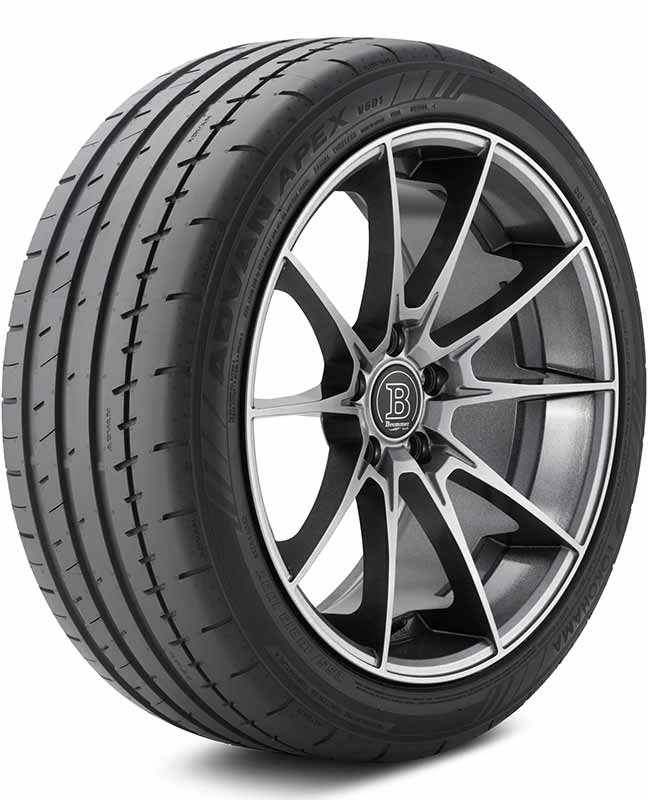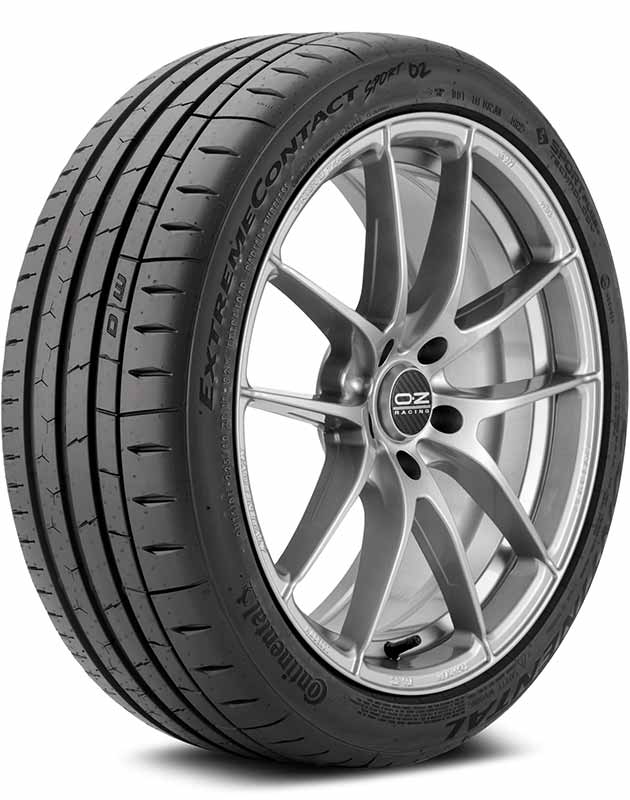When it comes to the safety and performance of your vehicle, the choice of tires is crucial, especially as seasons change. If you’ve ever found yourself pondering the differences between all-season, all-weather, and winter tires, and which one is the best fit for your driving needs, you’re in the right place.
All-Season Vs All-Weather Vs Winter Tires
All-season tires are versatile for various conditions but not optimal for extreme winter, all-weather tires offer a balance for moderate climates, and winter tires provide the best safety and performance in severe winter conditions.
In this article, we delve into the pros and cons of all-season, all-weather, and winter tires, their differences, and how to choose the best one based on your specific driving conditions and climate.

Understanding the Basics
When it comes to ensuring a safe and comfortable driving experience, choosing the right tires for your vehicle is crucial. Whether you’re cruising through city streets or navigating rural roads, the type of tires you have can make a significant difference. Let’s dive into the world of all-season, all-weather, and winter tires, exploring what sets each apart and how they can affect your driving experience.
All-Season Tires: A Jack of All Trades
What Are All-Season Tires?
- Designed to provide a balance between performance in wet and dry conditions.
- Constructed with a moderate tread depth and rubber compound that offers durability across various temperatures.
All-season tires are the go-to choice for many drivers. They’re like the trusty sneakers of the tire world: versatile and reliable for everyday use. For more in-depth info, check out our detailed guide on What Are All-Season Tires.
All-Weather Tires: The Middle Ground
What Are All-Weather Tires?
- A hybrid between all-season and winter tires.
- Feature a tread pattern and rubber compound that’s more adaptable to colder temperatures than all-season tires.
All-weather tires are the answer for those who face occasional snowfall but don’t want the hassle of changing tires with the seasons. They’re like having a year-round light jacket that keeps you warm in the fall and isn’t too heavy for a brisk spring day. Dive deeper into this type by exploring All-Weather Tires Vs Snow Tires.
Winter Tires: The Snow Warriors
What Are Winter Tires?
- Specifically engineered for optimal performance in snow, ice, and below-freezing temperatures.
- Made with a softer rubber compound and deeper tread patterns to improve grip on icy roads.
Winter tires are the heavy-duty boots for your car, offering unmatched traction and safety in harsh winter conditions. They’re essential for those living in areas with severe winter weather. For a comprehensive understanding, take a look at our article on What Are Winter Tires.
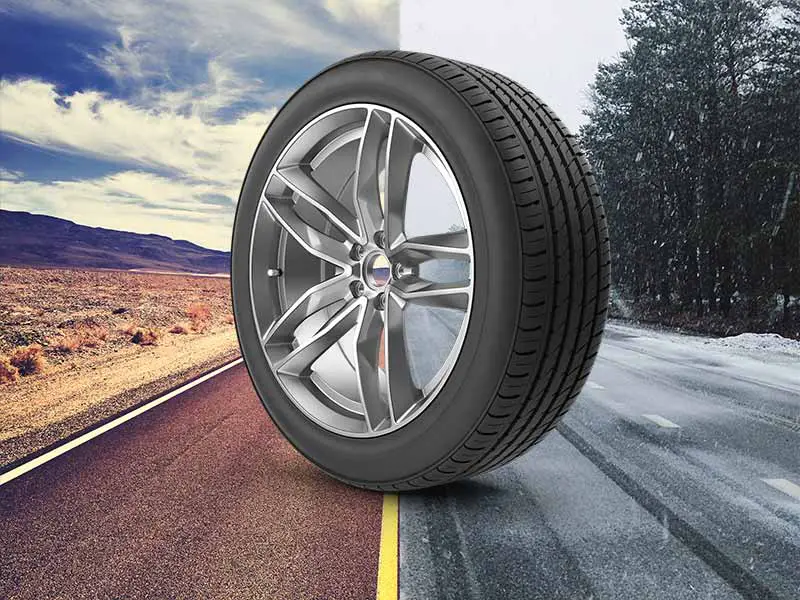
All-Season Tires: Versatility on the Road
All-season tires are often the default choice for many drivers, but what exactly makes them so popular? Let’s unpack their advantages and limitations, ensuring you can make an informed decision about whether they’re the right fit for your vehicle.
Advantages of All-Season Tires
- Year-Round Performance: All-season tires are designed to handle a variety of road conditions, from dry summer roads to wet spring showers. They’re like the Swiss Army knife of tires, offering decent performance across a spectrum of weather conditions.
- Longer Tread Life: Thanks to their moderate tread depth and durable rubber compound, all-season tires tend to have a longer lifespan compared to more specialized tire types.
- Comfort and Efficiency: These tires are known for providing a smooth, quiet ride and often contribute to better fuel efficiency.
Limitations of All-Season Tires
- Winter Weather Shortcomings: While all-season tires can handle light snow, they fall short in heavy snow and ice conditions. They lack the specialized tread and rubber compounds needed for optimal grip in severe winter weather.
- Not a Replacement for Winter Tires: In regions with harsh winter conditions, all-season tires cannot substitute the safety and performance of dedicated winter tires.
Ideal Use Cases for All-Season Tires
- Mild Climates: Perfect for areas with moderate weather conditions year-round.
- Everyday Commuting: If you’re driving predominantly in urban or suburban environments with well-maintained roads, all-season tires are a practical choice.
- Cost-Effective Solution: For those who prefer not to invest in multiple sets of tires for different seasons, all-season tires offer a compromise between performance and convenience.
Making the Right Choice
While all-season tires offer versatility, it’s important to assess your specific needs based on your local climate and driving habits. For a deeper dive into the world of all-season tires and how they compare to other types, our article on the Difference Between All-Season and All-Weather Tires provides valuable insights.

All-Weather Tires: The Balanced Choice
All-weather tires serve as a bridge between all-season and winter tires, offering a unique blend of features. They’re tailored for drivers who face diverse weather conditions but prefer not to switch tires seasonally. Let’s delve into the pros and cons of all-weather tires to see if they align with your driving needs.
Advantages of All-Weather Tires
- Enhanced Winter Performance: Compared to all-season tires, all-weather tires provide better traction in snow and colder temperatures. They have a tread design and rubber composition closer to winter tires, which improves grip in winter conditions.
- Year-Round Use: One of the biggest draws of all-weather tires is their versatility. They eliminate the need for a seasonal tire change, offering a practical solution for areas with fluctuating weather patterns.
- Good Wet and Dry Traction: All-weather tires perform well in both wet and dry conditions, making them a reliable choice throughout the year.
Limitations of All-Weather Tires
- Not as Effective in Extreme Winter Conditions: While all-weather tires outperform all-season tires in winter conditions, they still can’t match the superior grip and safety of dedicated winter tires in extreme snow and ice.
- Potential for Shorter Tread Life: Due to their softer rubber compound, all-weather tires may wear down faster than all-season tires, especially in warmer conditions.
Ideal Use Cases for All-Weather Tires
- Moderate Winter Conditions: If you live in an area with moderate, but not severe, winter conditions, all-weather tires can be an effective all-in-one solution.
- Convenience and Flexibility: For drivers who prefer the convenience of not having to switch between winter and summer tires, all-weather tires offer a good compromise.
- Urban and Suburban Driving: These tires are well-suited for city driving and areas where roads are regularly cleared of snow and ice.
Making the Right Choice
All-weather tires offer a middle ground for those who experience a range of weather conditions but don’t face extreme winter weather regularly. For a more detailed comparison between all-weather and winter tires, you can explore our article on All-Weather Tires Vs Snow Tires.
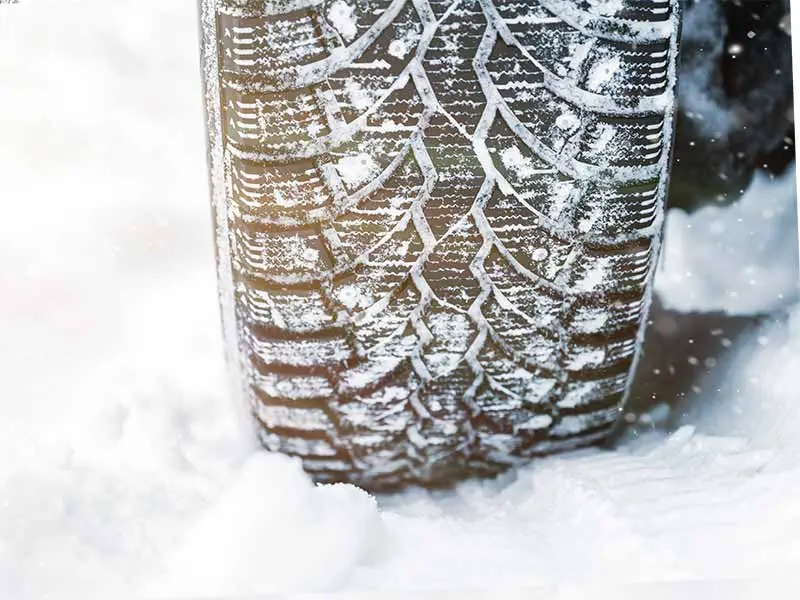
Winter Tires: Mastering the Cold
Winter tires are specifically designed for those challenging and often unpredictable winter conditions. They’re essential for drivers who regularly face heavy snow, ice, and freezing temperatures. Let’s explore why winter tires might be the right choice for your winter driving needs.
Advantages of Winter Tires
- Exceptional Winter Performance: Winter tires are the champions when it comes to navigating snow and ice. Their unique tread design and flexible rubber compounds are specifically engineered for cold temperatures, offering superior traction and handling.
- Enhanced Safety: The deep treads and specialized patterns on winter tires significantly improve braking and handling on icy roads, which can be a game-changer in terms of safety during the winter months.
- Designed for the Cold: Unlike all-season and all-weather tires, winter tires are made with a rubber compound that remains soft and flexible in freezing temperatures, ensuring better grip and control.
Limitations of Winter Tires
- Seasonal Change Required: One of the main drawbacks of winter tires is the need to change them once the season is over. They are not designed for warm weather and will wear down quickly in higher temperatures.
- Storage Considerations: Having a separate set of tires for winter means you need space to store your off-season tires.
Ideal Use Cases for Winter Tires
- Severe Winter Weather: If you live in a region with heavy snowfall, icy conditions, and consistently cold temperatures, winter tires are a must for safe driving.
- Mountainous and Rural Areas: In areas where winter road maintenance is less frequent, winter tires can provide the necessary traction and safety.
- Prioritizing Safety in Winter Conditions: For those who prioritize safety and performance during the winter months, investing in a set of winter tires is a wise decision.
Making the Right Choice
Winter tires are a crucial investment for those in colder climates, providing peace of mind and enhanced safety during the winter months. To get a full understanding of what winter tires offer, take a look at our comprehensive guide on What Are Winter Tires.

Comparative Analysis: Finding Your Perfect Tire Match
Let’s break down the differences between all-season, all-weather, and winter tires to help you determine which type best suits your driving needs and local weather conditions.
Difference Between All-Season and All-Weather Tires
- Weather Adaptability: All-weather tires offer better performance in colder conditions compared to all-season tires. They’re designed to handle light to moderate snow, whereas all-season tires are more suitable for mild winter conditions.
- Tread Life and Comfort: All-season tires generally have a longer tread life and provide a smoother ride in warmer conditions. All-weather tires, with their more aggressive tread pattern, may wear down faster in warm weather.
Difference Between All-Season and Winter Tires
- Winter Performance: The most significant difference lies in their ability to handle severe winter conditions. Winter tires outperform all-season tires in terms of traction, braking, and handling on snow and ice.
- Seasonal Usage: All-season tires can be used year-round in milder climates, while winter tires are specifically designed for use in cold weather and should be changed once the season ends.
Difference Between All-Weather and Winter Tires
- Extreme Winter Suitability: While all-weather tires are a good compromise for varying conditions, they don’t match the superior grip and safety provided by winter tires in extreme winter scenarios.
- Convenience vs. Performance: All-weather tires offer the convenience of not having to switch tires seasonally, whereas winter tires provide the best performance in harsh winter conditions but require seasonal changeover.
Making the Right Choice
- Consider Your Climate: The key factor in choosing the right tire is your local weather conditions. If you live in an area with heavy snow and ice, winter tires are a must. For milder climates with occasional snow, all-weather tires might be sufficient.
- Driving Habits: Think about your driving patterns. If you often drive in rural or mountainous areas in winter, investing in winter tires could be a wise decision for safety.
- Balance of Features: Consider what’s most important to you – convenience, tread life, driving comfort, or performance in specific weather conditions.
Resources
Below are some links you may find helpful when learning about tires:
- Tire safety basics – National Highway Traffic Safety Administration
- How to choose the right tire for your vehicle – Consumer Reports
Final Thoughts
Understanding the differences between all-season, all-weather, and winter tires is key to ensuring your vehicle is equipped for safety and performance in various conditions.
All-season tires are a versatile option for mild conditions, all-weather tires strike a balance for those facing moderate weather changes, and winter tires are indispensable for severe winter conditions.
Remember, the right choice depends on your local climate, driving habits, and personal preferences.
By equipping your vehicle with the appropriate tires, you ensure a safer, more efficient, and more enjoyable driving experience, regardless of the weather.
Good luck and happy motoring.

